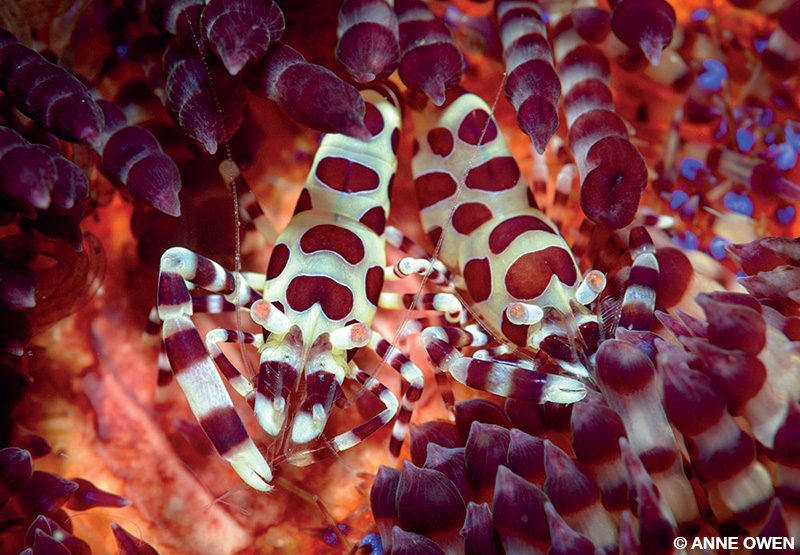I was feeling very comfortable on my 13th dive at Anilao in the Philippines. The weather was great and the sea flat and calm as my guide and I puttered along a rock face at about 30 feet looking for macro critters. We had been down about 25 minutes and had the site to ourselves.
As I leaned toward a pretty pair of Coleman shrimp, I felt a sharp and insistent tug on my left elbow. I looked up and saw my guide dramatically sweeping his hand across his throat. Stunned, my mind flipped back to my training 49 years ago and interpreted this as the signal for danger. I immediately scanned my surroundings, checking the surface for an errant boat, the rock face for some poisonous fish and the deeper water for who knows what.

My guide spun me around and grabbed my spare regulator off my octopus second stage and jammed it into his mouth, breathing rapidly and deeply. We looked at each other with a bit of shock for a good minute before exchanging OK signals and slowly making our way back to our boat. Although we had stayed in shallow water during the entire dive, we made an extended safety stop and then climbed onto the outrigger with no small amount of relief.
We immediately began to analyze the dive. What had gone wrong? How did an experienced local guide run out of air, and why had I totally failed to understand his signal and react accordingly? As is often the case, several mistakes compounded to lead to a potentially serious situation.
Mistake 1: As is common in many high-end dive operations, the guide and I relied on our boat crew to change the tanks and prepare our kit for each dive. My guide’s tank did not get changed after the first dive, so it was likely less than half full at the start of this dive, but nobody noticed.
Mistake 2: My guide dives all day every day and admitted that he had not paid much attention to his own kit. After checking his pressure gauge, we discovered it was faulty and still showed 1,600 psi (110 bar) even when the tank was empty. It’s no wonder there was no warning of the out-of-air situation.
Mistake 3: In our four days of diving together, we had never done a buddy check, so we had never compared hand signals. Shame on me for missing this vital safety step and misunderstanding the situation.
No one was hurt in this incident, but it made me realize that complacency has no part in diving. I learned my lesson that on every dive — no matter how familiar, how easy or how shallow — safety is a serious undertaking and deserves the proper attention to equipment and good dive practice.
Share Your Story
Do you have tips, advice, travel strategies, dive techniques, lessons learned or other words of wisdom to share with your fellow divers? Alert Diver wants your story! Email it to , or mail it to “Member to Member,” c/o Alert Diver, 6 W. Colony Place, Durham, NC 27705.
© Alert Diver — Q4 2019